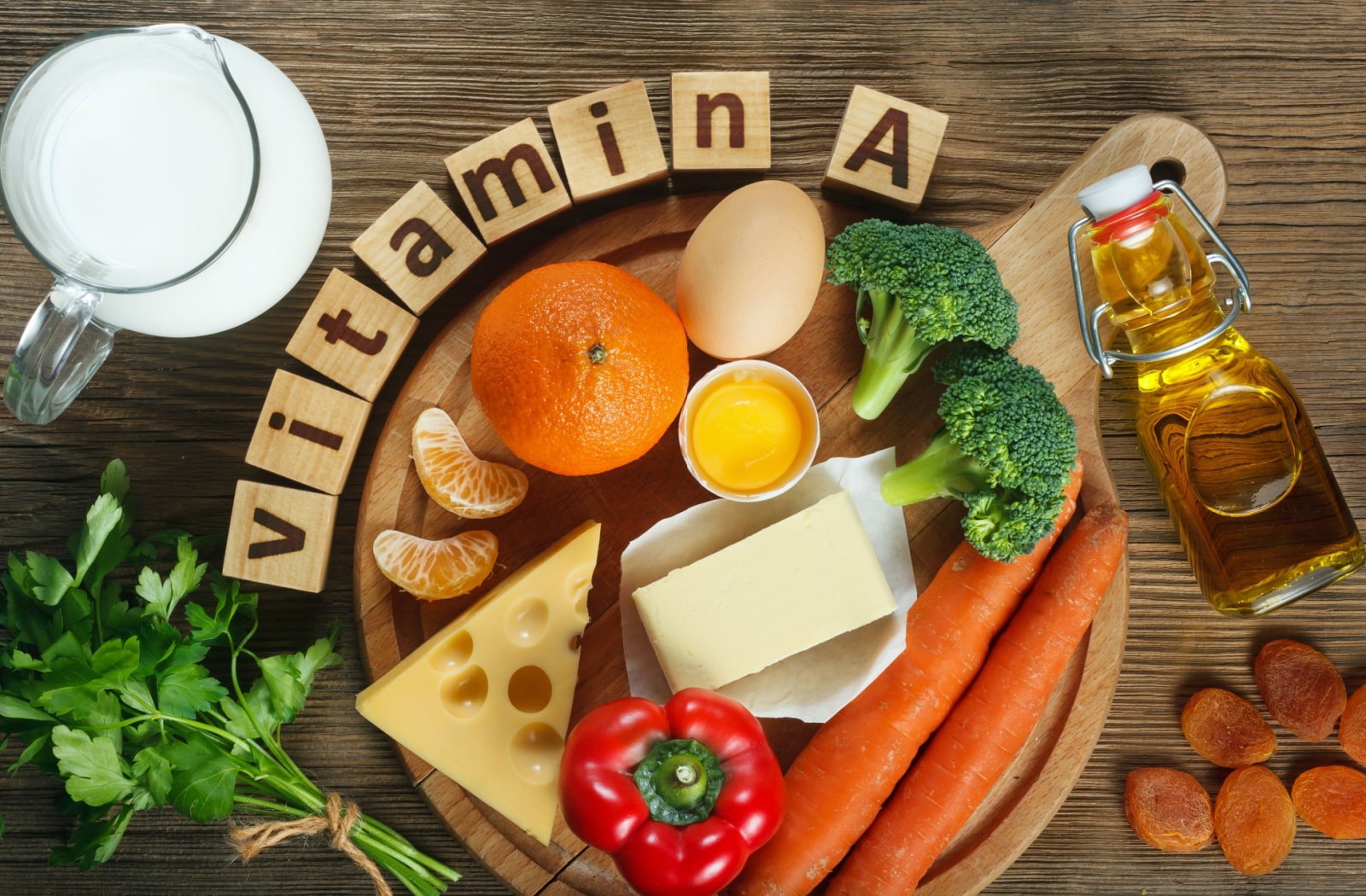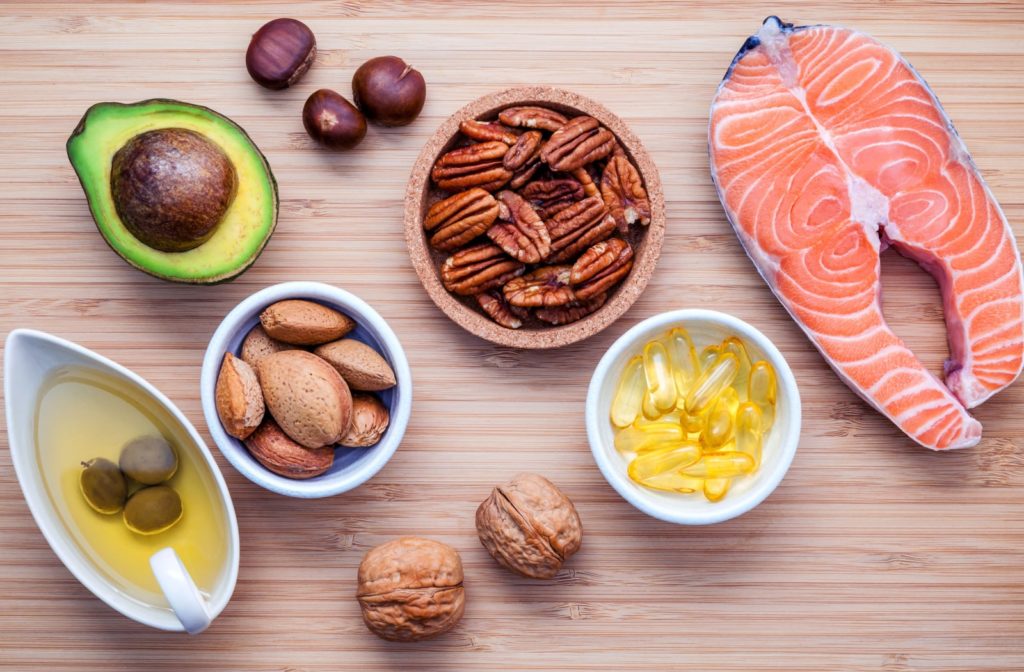A comprehensive eye exam is an effective way to protect your vision, but proper eye care begins at home. Your body is one interconnected machine, and the foods you eat can significantly impact your eye health. Certain healthy fats, vitamins, and minerals can preserve the health of your tears and keep your eyes hydrated.
But you can’t simply eat everything that passes your plate, and some vitamins are essential in preventing dry eye symptoms. These foods can improve the quality of your tears and, in addition, are good for your overall health.
What Is Dry Eye Syndrome?
Dry eyes are a common condition in which the eyes do not produce enough tears or the tears evaporate too quickly, resulting in discomfort, irritation, and inflammation. Tears are essential to the health and well-being of the eyes.
Tearing up doesn’t just mean you’re sad or overcome with joy. Tears help lubricate, protect, and nourish the eye’s surface.
Symptoms of dry eyes can include:
- Dryness, burning, or scratchy sensation in the eyes
- Redness and irritation of the eyes
- Sensitivity to light
- Mucus discharge
- Blurred vision or difficulty focusing
- Feeling like there is something in the eye
- Excessive tearing (as the eyes try to compensate for dryness)
What Causes Dry Eyes?
Our eyes don’t dry out for no reason, though there are many causes. We can split dry eyes into two general types:
- Aqueous deficiency dry eye occurs when your eyes don’t make enough tears.
- Evaporative dry eye occurs when your tears evaporate too fast and is the cause of over 85% of dry eye cases.
A single thing doesn’t typically cause dry eyes. Instead, it’s a combination of factors that each increase your likelihood of experiencing dry eyes. Common factors include:
- Age: Dry eyes are common in people over 65 since we simply make fewer tears as we get older.
- Sex: Women are more likely to develop dry eyes.
- Medicines: Dry eyes can be a side effect of some common medications that treat allergies, high blood pressure, and depression.
- Other health problems: Some conditions, such as diabetes, rheumatoid arthritis, or Sjödren’s syndrome, can cause dry eyes. Blepharitis, because it’s an inflammation of the eyelids, can be both a cause and a symptom of dry eyes.
- Environments: Windy, smoky, or dry environments can cause your tears to dry faster.
- Other factors: Wearing contact lenses for longer than suggested, laser eye surgeries and allergies can all contribute to dry eyes.
What Vitamins Are Best for Dry Eyes?
Getting the correct amount of nutrients into your diet could be as simple as changing your meal plan, but it may also include taking supplements to boost your vitamin intake.
Vitamins aren’t a bandage you can throw on your dry eyes until they heal. While studies show supplements can factor into maintaining eye health, much of our daily intake comes from the food we eat. You should always talk to your doctor before taking supplements because you might already be getting enough of a particular nutrient.
Omega-3 Fatty Acids
Omega-3 is a polyunsaturated fatty acid—essentially a “good fat.” It may reduce inflammation in the body and alleviate uncomfortable symptoms related to dry eyes. It also appears to support the proper function of our eye’s meibomian glands.
These small glands in the eyelids produce oil that prevents our tears from evaporating, and their health is essential in avoiding evaporative dry eye. Many optometrists suggest increasing the intake of omega-3s as the first step in preventing dry eyes.
If your optometrist suggests you need more omega-3s, consider adding some of these foods to your diet:
- Fatty fish
- Flax seeds (Crushed)
- Chia seeds
- Flaxseed oil
- Walnuts
- Almonds
If you’re not eating enough of these foods, you might consider taking omega-3 supplements such as fish oil.

Vitamin A
Vitamin A is one of the most vital vitamins for eye health. It’s needed to produce tears and combines with other proteins to give us our colour and low-light vision. Vitamin A deficiency can leave our cornea (the clear dome at the front of our eye) and conjunctiva (the thin membrane over our eye and eyelids) unprotected.
Vitamin A is a potent antioxidant and a vital part of all aspects of eye health, including potentially helping to reduce your risk of age-related macular degeneration.
Foods high in vitamin A include:
- Carrots
- Sweet potatoes
- Beef liver
- Eggs
- Kale
- Melons such as mango and cantaloupe
Vitamin D
While vitamin D primarily comes from the sun, it’s not the only source of this fat-soluble vitamin. Though some studies have shown vitamin D may help reduce inflammation on the eye’s surface and improve the effects of lubricating eye drops, the danger of vitamin D in regards to dry eyes comes from a lack of it.
Studies show vitamin D deficiency seems to lead to lower tear production levels, even though there was no appreciable change in tear break-up time. Keeping your vitamin D levels closer to the ideal is an effective way to prevent dry eye symptoms from occurring.
Vitamin D isn’t naturally found in many foods, but good sources include:
- Egg yolks
- Tuna
- Salmon
- Fortified dairy milk
- Fortified cereal
For many Canadians huddling inside for the winter away from the sun, a convenient source of vitamin D is supplements.
Continuing Treatment for Dry Eyes in North York
If you’re dealing with recurring dry eyes, taking vitamins might be the remedy you need. York Mills Eye Care’s knowledgeable team is ready to give thorough answers to any of your dry eye questions. Book an appointment with us today and find relief from your dry eyes.




